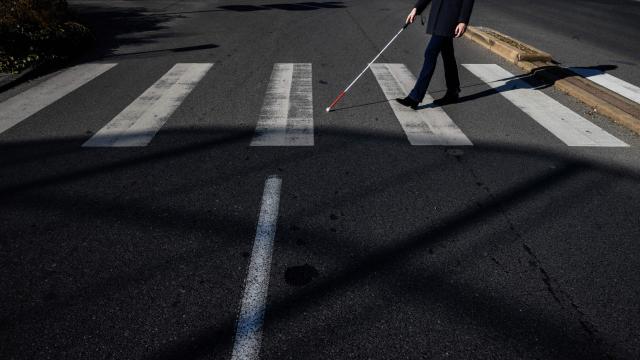A new study out Monday suggests that losing your sight early in life can lead to subtle alterations in the brain circuitry primarily responsible for hearing
It’s commonly believed that being born blind or losing your sight early in life can make hearing more sensitive. blindness, especially if a person is born with it or if it happens early in lives, can make hearing more sensitive.
But while studies have consistently shown that blind people do seem to have more precise hearing in some ways, we don’t know too much about how or where this heightened ability actually shows up in the brain.
The authors behind this latest study, published in the Journal of Neuroscience, say theirs is one of the first to look at what’s happening in the auditory cortex of people living with blindness.
“Previous studies have really looked at the behavioural aspects of it, and we’re one of the first to try to tackle it in a more modelled approach,” lead author Kelly Chang, a vision and cognition researcher at the University of Washington, told Gizmodo.
They scanned the auditory cortexes of people who were born blind or developed blindness early in life (including some people with anophthalmia, a condition where the eyes are completely absent) via MRI. They were also scanned as they underwent hearing tests that had them listen to pure tones.
These tones were played at different frequencies, and their brain activity in the auditory cortex was measured as they heard these tones. Their results were then compared to a control group with average vision. Everyone involved had average hearing.
They found that the auditory cortex was similar in both groups, including its size. But there was a distinct difference in one aspect of how blind and sighted people processed sound. In those who were blind, the auditory cortex appeared to be more attuned to certain frequencies of sound played in the test, based on the kinds of brain activity the researchers saw in the scans.
“Let’s say you wanted to distinguish between a low frequency and high frequency note. For people with sight, that’s actually pretty easy to do, since the notes are very far apart. But in early blind folks, probably because they only have their auditory system to rely on, they’re actually much better at being able to distinguish between very close frequencies,” Chang said.
Other research has suggested the brain’s neural connections can reorganise when a person becomes blind, specifically in the areas that usually process sight. This is an example of the brain’s well-known plasticity. But the findings, the authors wrote, provide “some of the first evidence in human subjects” that this compensation can happen in areas of the brain that aren’t directly affected by blindness.
“Seeing this reorganisation in somewhere so fundamental is remarkable,” she said.
The study’s small sample size (nine subjects in total with early blindness, including five with anophthalmia) means that the team’s findings are far from definitive. But even if they were, there’s still some important questions to figure out, the authors say.
For one, there’s the matter of what makes this compensation in the brain’s auditory cortex possible. Previous research, including by Chang’s team, has suggested that these sorts of changes can only happen when someone becomes blind as a child, and does not occur in those who lose their sight as adults.
And maybe it’s not the loss of sight itself that drives this reorganisation in the auditory cortex, but a blind person’s need to focus on certain sounds more to navigate around the world. Something else worth studying is how people who become blind early in life process moving sounds and speech—complex noises that require more cooperation between different areas of the brain.
Future studies untangling these questions, which Chang and others are working on, could examine what happens to the auditory cortex in people who are temporarily blinded. They could also look at people who became blind in adulthood, including those who later regained their sight to some degree.
